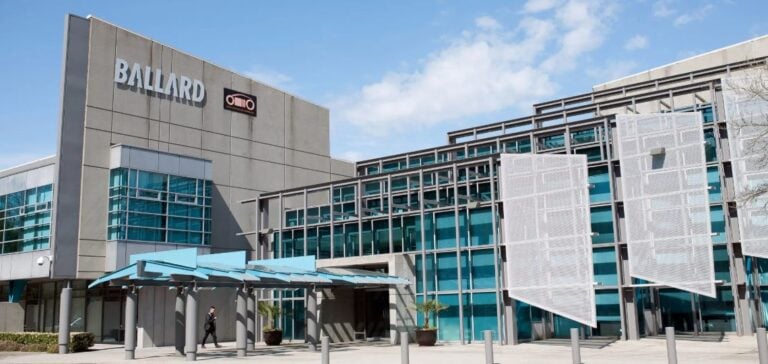Canadian company Ballard Power Systems has signed a multi-year agreement with Stadler US to supply 8 megawatts of FCmove®-HD+ hydrogen engines. These engines will be integrated into FLIRT H2 trains, a range of zero-emission trains designed to meet the Federal Railroad Administration (FRA) standards in the United States.
This partnership marks a significant step forward in the effort to decarbonize rail transport in California. The project includes the purchase of 10 trains by the California Department of Transportation (Caltrans), with an option for an additional 19 units. These trains will replace diesel models on non-electrified lines, reducing greenhouse gas emissions while avoiding costly investments in catenary infrastructure.
A Strengthened Collaboration Between Ballard and Stadler
Ballard and Stadler have collaborated for over three years on integrating hydrogen engines into FLIRT H2 trains. This technology has been successfully demonstrated, making the FLIRT H2 the first hydrogen-powered train to comply with FRA standards in the United States.
Randy MacEwen, CEO of Ballard, expressed his enthusiasm for this partnership: “This order expands our presence in the rail market and demonstrates the relevance of our fuel cell solutions for regions without catenary infrastructure.” Hydrogen engines offer a zero-emission alternative, with performance comparable to diesel engines in terms of payload, range, reliability, and refueling time.
Strategic Advantages for California
The hydrogen train technology represents a major asset for California, which is striving to meet ambitious carbon neutrality goals. By opting for hydrogen solutions, Caltrans avoids the costly electrification of tracks while modernizing its transportation network sustainably.
Martin Ritter, CEO of Stadler US, emphasized the importance of this initiative: “The FLIRT H2 train can replace diesel trains on non-electrified or partially electrified lines while meeting California’s zero-emission goals.”
A Global Solution for Energy Transition
The FLIRT H2 trains powered by Ballard engines exemplify a global trend toward adopting hydrogen as a clean energy source in the rail sector. Ballard, as a leader in hydrogen fuel cells, continues to provide zero-emission mobility solutions for various transport modes, including trains, buses, and ships.






















